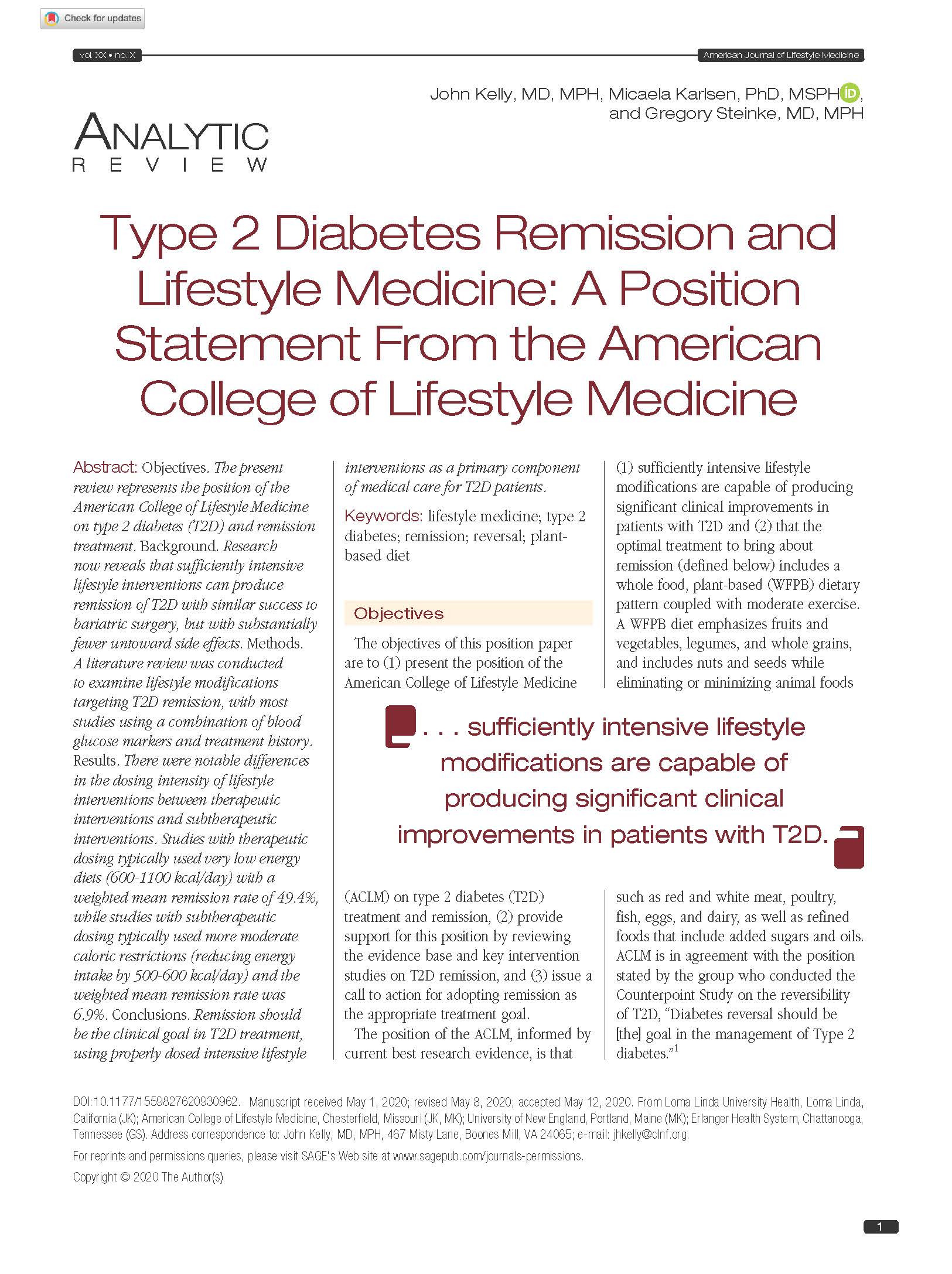Type 2 Diabetes Remission and Lifestyle Medicine: A Position Statement From the American College of Lifestyle Medicine
Abstract
Objectives. The present review represents the position of the American College of Lifestyle Medicine on type 2 diabetes (T2D) and remission treatment. Background. Research now reveals that sufficiently intensive lifestyle interventions can produce remission of T2D with similar success to bariatric surgery, but with substantially fewer untoward side effects. Methods.
A literature review was conducted to examine lifestyle modifications targeting T2D remission, with most studies using a combination of blood glucose markers and treatment history.
Results. There were notable differences in the dosing intensity of lifestyle interventions between therapeutic interventions and subtherapeutic interventions. Studies with therapeutic dosing typically used very low energy diets (600-1100 kcal/day) with a weighted mean remission rate of 49.4%, while studies with subtherapeutic dosing typically used more moderate caloric restrictions (reducing energy intake by 500-600 kcal/day) and the weighted mean remission rate was 6.9%. Conclusions. Remission should be the clinical goal in T2D treatment, using properly dosed intensive lifestyle interventions as a primary component of medical care for T2D patients.

